?By Manik Katyal Emaho Magazine
Emaho got into a free-wheeling t?te-?-t?te with the legendary award-winning Bangladeshi photographer, Shahidul Alam to pry beyond his politics
Manik: In all your past interviews, you have mentioned how photography happened to you, so I will not ask that question, but what is photography for you? And your relationship with politics?
Shahidul: I am a very political animal and the reason I took up photography was because of my political position. Being concerned about the social situation in my country and globally, I happened to stumble into photography and discovered what a powerful tool it was; which happens to be the only reason why I practice it. I am fond of photography, I enjoyed images but at the end of the day that for me is not the point of the exercise. I continued to use photography in whatever way I can. Largely because, I see the strength of the medium and I recognise the potential. Having said that I think ? I have said this before ? that if tomorrow it ceases to effective, I?ll have no qualms about giving it up and taking something new.
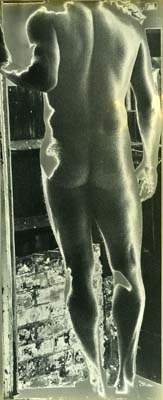
That for me is the point of the exercise.? And when I am talking of politics I am certainly not talking about party politics and looking at the social spectrum within which we live, where the rhetoric is about egalitarianism about social equality? but there does not happen to be a single government in the world that I know of right now that believes in that rhetoric ?or at least practices that rhetoric ?despite the fact that it espouses it constantly. So, I at one stage began to take stock and realised that the major changes in social terms were politics, media, education and culture. I am politically active, politically engaged, though I am not involved in party politics. But I insist upon working in all the other three areas to ensure that there is sufficient pressure upon the politicians, to ensure that people who are governed have a say in the process of governance.
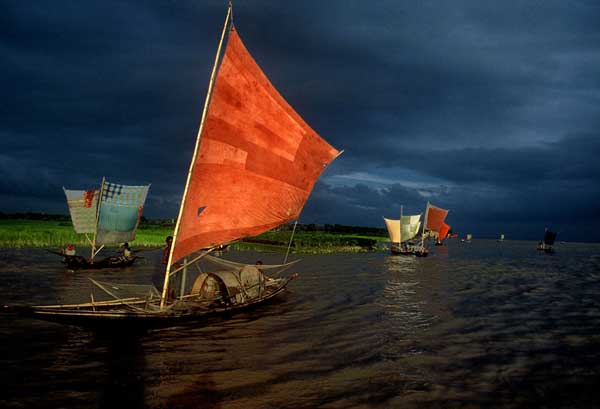
Shahidul: I was very engaged with the Workers? Party. I mean, certainly to friends around me I was not a party member if you like.
Manik: Did the whole experience change your personal perspectives?
Shahidul: I don?t know if it was that way around or the other way? I think I believed and continued to believe in a set of values that the Workers? Party overlapped with. It wasn?t so much, the fact that it was a workers? party. It was a set of commonly held beliefs and those beliefs happen to be mine. I mean one of the ironies is that today I think, at least in my country, the Left has moved away, faraway from those values. And quite frankly for me the Left has lost its relevance. Certainly in Bangladesh, the Left is in a coalition with the ruling party at the moment. And as far as I am concerned there have far too many right wing beliefs to justify what we call Left. I stay committed to the core principles that the Left once espoused.
Manik: I also remember what you said during the Chobi Mela ??I don?t like photography, I like the change photography can get…?
Shahidul: It?s not that I don?t like photography. Perhaps that?s a wrong way to put it. I do like photography. I am very fond of it. As a practitioner, as an artist, for me it is a wonderful medium. Not merely because of what it does, but also because of what it has offered me. I used to live eight minutes from where I work, now I live 10 minutes from where I work and I used to walk to work. For me what?s quite magical is that, that same walk which might otherwise have been dull and boring and repetitive? is wonderfully exciting every day because I have learnt to see things differently as a photographer. And that is a magic I won?t deny. But that is not why I became a photographer and this is a very happy bonus but a bonus all the same.
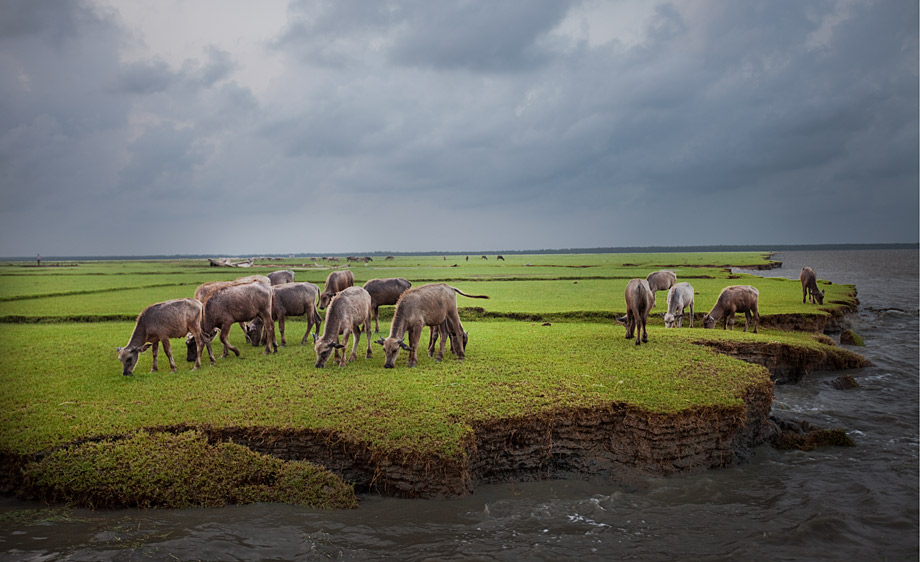
Manik: You?ve said photography happened very coincidentally to you when you used the camera you bought for your friend. But what were the first images you took when you were first playing around with it travelling all over America, Canada?
Shahidul: I was taking pretty pictures. It was much later that I began to read about photography and discovered some of the rules that photography had. Things like compositional rules, rules of horizons being horizontal, all that sort of thing. And yes?I went along with all of that, I even began to critique and analyse and appreciate pictures based upon whether they adhered to those value systems or not. It took me a while to go beyond that. It continues to excite me, I mean nowadays I work digitally, but the joy of watching a print?
Manik: ? in the darkroom??
Shahidul: ?yes all that. I mean I worked in a big dark room, the university dark room. And it was a magical space. I would often go in at the end of the day, after my work at the lab, start printing and it would be daylight when I came out and I had forgotten all about it. I would sing,? on my own? there was no one else around?. I would turn on the radio or sing and make prints and?
Manik: … So we are talking about the early ?80s?
Shahidul: Yes early ?80s. And certainly when I was doing colour prints, I didn?t have a colour enlarger; I didn?t have a colour processor. So it was a black and white enlarger with filters that I used to use. Open trays on dish-warmers which I used to carefully control the temperature with?
And of course because I was working in colour I couldn?t use the safelight. So I was working in complete darkness, feeling my way through, but it was fun regardless. It?s a great kick, I don?t discount that, I mean…that still is there. And the joy of seeing a good print is still very, very special. I wanted to touch that print and hold it. It?s phenomenal. But, even so…for me that is not the point of the exercise.
Manik: How was photography in Britain during those times?
Shahibul: I don?t know very much because I was a on my own?okay I had some engagement with camera clubs, the college I was with, had a little camera club. But that was a very tiny part of photography at large and that was all I knew. The camera club was very good in the sense that, there were extremely good technicians producing very fine immaculate images. But images, which I know feel, didn?t mean very much. At that time it did, at that time that?s what I looked at. I looked at a great print and was in awe of it, I tried to emulate what others had done. These were people who had fellowships at the Royal Photographic Society, which to me was up there in the Olympus sky and I aspired towards it. And for a long, long time that was what photography was for me. Until, the politics of what I wanted to do took over.
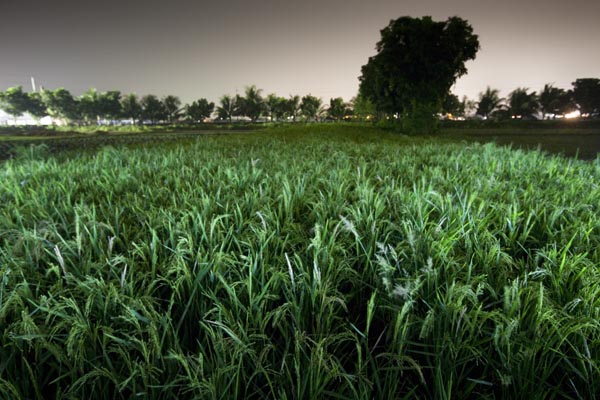
Manik: …so that urge was always there?
Shahidul: Yes, at both levels. I mean I have always been a political animal. I don?t think that has shifted. It has sharpened perhaps. The fact that I discovered photography and photography gave me so much of joy ?was a beauty in itself. It was when I began to see what more it could do besides producing beautiful pictures that I really began to see the strength in it.
Manik: Sebastian Salgado wrote the introduction for your book where he has mentioned briefly about the scenario at Bangladesh and in Brazil. So how has the journey been and how has it evolved?
Shahidul: It?s been a complicated journey. Never straightforward, never in one line, there have been many steps backwards, many failures…but it?s also been a very exciting journey. I feel that in some way you can control your own destiny. It?s a very powerful idea. And that is something that we felt, we dreamed…the fact that it has been able to take onboard so many other like-minded people along the way. There?s been a great sense of solidarity, but for me the most exciting time is the time that?s ahead? because of what I see happening, that can be done, that will be done. And some little things, I mean…when I started teaching photography I was the only teacher, the only local teacher, I managed to arm twist and cajole my friends into spending quality time, sleeping on my floor, giving quality education to our students and they were very generous with their time. They did so. But today, of our 24 teachers 22 are former students and that is when I realised that these are people who take on our school? they argue with me, they fight with me, they tell me all things that are going wrong and they have that passion. It?s their school. And I feel that if I get run over by a bus tomorrow they will probably keep it going.
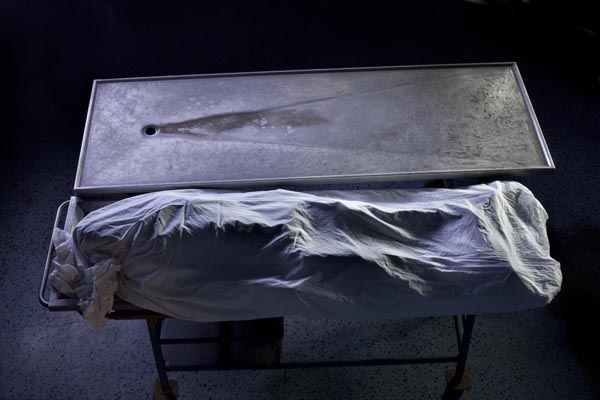
Manik: What was your actual inspiration when you actually started?let?s go back to the early ?80s? what was the aim and what was the personal inspiration for you?
Shahidul: The initial thing was about the country itself. I mean I left Bangladesh immediately after the War of Liberation. There were great hurdles, we all had. I went for higher education, I came back and found the country, which having come out of this incredible War of Liberation, had been taken over by our own military. We had fought off a foreign military, only to find that our own military had taken over.? So I was in the streets as an activist, feeling the heat of the highway and that was the fuel for my work. And in practical terms, that was what took me on this journey. Because up till that point the photography that I had done was either pretty pictures or the commercial images that essentially fed my belly. And that hadn?t fed my soul; it was the activism on the streets that fed my soul. What for me has become important is the fact that…now…is now what I continue to do. And I?m in this wonderful situation where people pay me for what I love doing. I mean how much better can it be? Having said that I think, it?s been a path that I have very carefully charted for myself because the options were there to become a fashion photographer, a successful commercial photographer and all those sort of things? but I knew very well where I wanted to be and the fact that the returns were in no way guaranteed? but I think if I reflect, perhaps my strongest work has been and continues to be my personal work. And I have been lucky, in the sense that while returns have not been immediate, my personal work has provided me the means to be able to continue doing that personal work and that has fitted in so well with my politics and my ideologies.
Manik: So are you saying it was actually your photography that got you going?
Shahidul: No, it was my activism that got me going and the photography?
Manik: ?played a part…
Shahidul: …a very important part? but not only did it play an important part. In the long run I think, as one might expect, one?s personal work is one?s best work. I have been lucky in the sense that that has always allowed me to make a living. That always doesn?t happen. But if I look clinically, then while the returns have not been immediate through grants, through awards, through actual income from what I produced as part of my activism, I think I have actually done commercially better, as a photographer who has done personal projects, then I would have done doing assignments for big magazines.
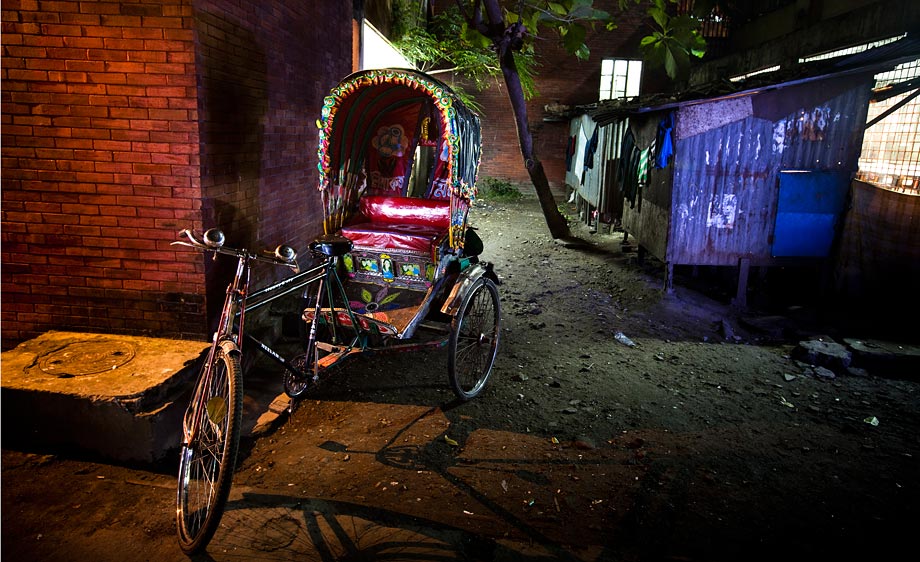
Manik: Can I ask you about the letter you wrote to the World Press Photo awards?
Shahidul: Yes (laughs)
Manik: So was that all of a sudden? What came into your mind and what did you actually write in that letter?
Shahidul: It was not all of a sudden. It was anger. I looked at this contest, I looked at the jury ? it was western, I looked at the content ? it was western. And I saw that they called themselves World Press and this audacity angered me. The fact that the majority of the world was being totally dismissed by a very credible organisation and that they would get away with that was something that bothered me. So I felt, I had to address that inequality. So essentially what I wrote to them was that I thought that they should change their name and call themselves the European Photography, press photography. But…and I said why, but I did add at the end that I still thought that it was an important contest and should there be a possibility of hosting it, it would be welcome. So, I wasn?t closing doors, I wasn?t turning away, I was merely questioning the validity of their claim.
Manik: So, till date I guess from the last 52 years there has not been anybody besides you from Asia on the chair of the? jury panel. Right?
Shahidul: The chair of the jury as far as I know? I am the only person of colour.
Manik: And you have been on the jury four times?
Shahidul: I have been on the jury four times. I have chaired it once. The chairing is the exit point usually. You work your way up to be the chair. The penalty is, it also quite demanding. I mean you have to spend two weeks? two weeks of your life is a lot of time to give.
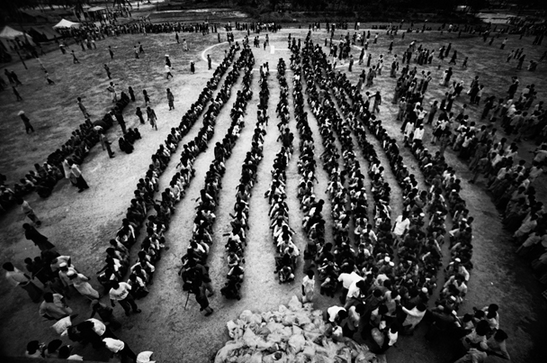
Manik: Going through everything??
Shahidul: Yes. Umm, I am not trying to make it sound arduous. I mean it is taxing. But it is very gratifying. You are in the company of the finest professionals, the debates, the discussions, they are all very enriching. It?s a very rewarding process, but in this time and age I think I would be hard pushed to put two weeks of my time anywhere.
Manik: And, how was the experience??
Shahidul: Yes, I mean, I have been on the jury in ?94 after that fateful letter…
Manik: Were you expecting something like that?
Shahidul: No, it wasn?t…no, not at all. Quite the opposite, I mean I didn?t know this organisation, I had just written off a stinker to them. So for them to turn around and invite me to be a member of the jury was quite something. They did mention in the letter that it was not in response to mine, it was an independent decision. I am not going to contest that. The timing was very interesting.
I enjoyed it. I was a novice. I was in the company of very fine practitioners. I found being in that jury room hugely inspirational and very rewarding and learnt a lot from it. The fact that they asked me again, somewhat reassured me in thinking that I hadn?t completely messed it up. The time after that, they started something else. I mean the first time I was there? remember there were only five digital entries and to look at these pictures we gathered around one television set and watched those five digital entries.
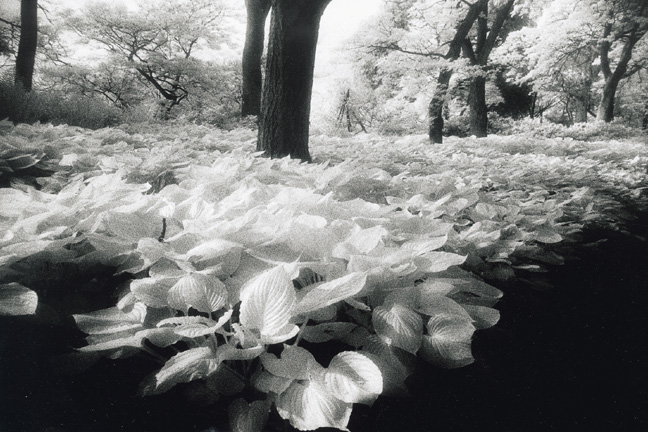
Manik: What year was this?
Shahidul: This was ?94. You can see how it has changed since then.
Manik: ?almost twenty years ?
Shahidul: Yes, dramatic transformation. And of course the numbers have grown now? they only take digital entries. But then, once it started getting bigger they realised that there were simply too many images for one set of jury to go through. At that time they had a weeding process which was done by an independent panel. But it was felt that it was not fair. People submitted their work on the assumption that this jury would look at their work. In order to repay the trust, they later split it up into two components. And I was in the first jury ? a set of senior jury members. And then of course later on?
Manik: There hasn?t been anybody besides you in the chair. So does that mean that there are not many capable people coming from Asia or because you had written a letter to them??
Shahidul: I find that problematic. I find that problematic because that suggests? that implies certain things. But I have continued to work with World Press in trying to change World Press. When I began to work with their education system, the education program was very much at its infancy. At that time, master class would only bring western photographers. I was involved in the child jury process, I argued very passionately for an increase in the minimum age of master class students, because in our part of the world people start taking it on as a profession at a much later stage of their life. In Europe you might get an 18-year-old? by the time they are 30 they will have 12 years of experience. I myself started photography when I was 29. So it?s a very different set of circumstances and I had to try and convince them that they needed to think differently. I was involved in the very first seminar programs with Bangladesh being one of the countries involved. And I stayed involved with them and I am now very actively engaged in their education program? and I think that is the more important role the world press plays rather than the contest itself. The contest has the high visibility, that?s what brings in the money. In terms of doing what it is meant to be doing, promoting photography, promoting photojournalism, promoting the quality of photography.
I think the education program of the World Press is really what should be celebrated. And there I am very actively engaged. I am also the chair of the Asian Nomination Panel of the World Press. I remember very recently talking to them about expanding their international board of advisors, which still happens to be Dutch. I think it is problematic that an organisation which calls itself World Press still is as Dutch as it is. And I believe they are looking towards changing it? but in some ways it?s a very conservative organisation. I remember being the first team of advisors which suggested that they should take on multimedia content.
Manik: Which happened??
Shahidul: Which now they are trying to build up. Right now we are part of the Press Freedom Program which looks at broadening and strengthening local capacity in these countries. I continue to argue with them and they continue to be my very good friends.
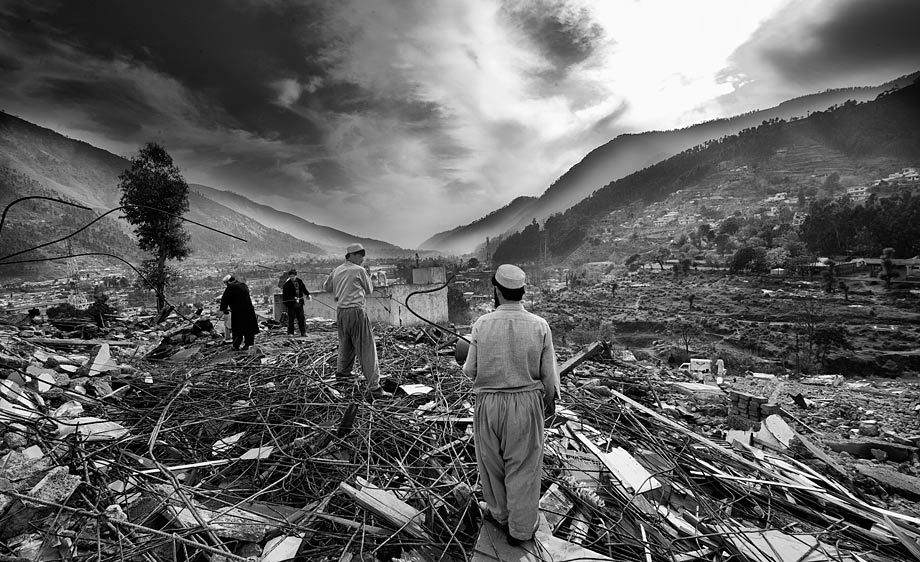
Manik: But my question was besides the chair panel…many countries in Asia have a photographic history and they have so many forefathers of photography coming from there. So why not…Do you think that they are open about this?
Shahidul: There are several issues to consider. One of them is language. Perhaps I am being too open when I say this but, I must also confess that, that the jury panel is a daunting space. You have high profile people from prestige organisations and things like that. And there is a lot of pressure on the jury members. You have to be able to contain that pressure. You have to be able to ensure that certain people do not get more space and leverage than others do. You need to be able to diffuse tension; you need to be able to manage prima donnas. There is a whole range of things that has to be done and that requires prescience? that requires language? that requires diplomacy? that requires guts?. a whole lot of things. The fact that in the majority world, English is not our mother tongue is something that puts us at a serious disadvantage. The fact that many other people who are very fine photographers themselves would have been possibly very good jury members but do not normally deal with these political situations? trying and managing those situations?? and can handle say people like the picture editor of Time Magazine, you know top honchos of the world?. and ensure that they behave responsibly. It requires a certain presence, and I think that is where perhaps the problem is, that opportunity does not arise too often in the majority world.
Manik: Exactly that?s my point…
Shahidul: So how…it?s a catch 22 situation. Unless they find themselves in that situation how do they then develop the skill sets to be able to manage such a complicated situation? One of the things that I am now talking to World Press is about setting up in collaboration with us an Asian press photography contest. And I hope that we can have similar ones in Latin America, Africa and through that process we will grow the future jurists of tomorrow. I was wonderfully pleased when Abir Abdullah, a first year student of Pathshala later went on to become a jury member for world press? and I think through that process it will happen? and I will also admit that changes are taking place, while there has not been another chair which I am saddened about, it is true that many Asian, Latin American, and African photographers now do make it to the jury? and I think it?s only a question of time.
Manik: Do you think they are going a little slow? Like 52 years…
Shahidul: They are. Yes. But I think it is down to us to make them change. I think it should be the other way around. I don?t think that they should be the one to decide. I think it is time we took on control and not depend on World Press to be showing us the way if you like. There is no reason for someone in the majority world to not create a better alternative. And that is what we must do. If you look at it in those terms, possibly one of the finest schools of photography is in the majority world. We have got festivals like Chobi Mela, we have got agencies like Drik that has played such a wide role. There is no reason that why we cannot extend? have a contest that we run, I don?t think it?s only for World Press. I think organisations like the United Nations should be discarded because they have lost all relevance. They are organisations that are puppets of the West yet we continue to give them credibility. I think it is about time we take control and turn it around. We do not wait for them to give us validity, we take control ourselves.
Manik: I agree, completely. You were banned by the government for Crossfire exhibition which led to many further incidents. You also being an activist, I am going to ask you?what are the measures that can be taken to prevent this sort of censorship in a free world ? You know, Crossfire is an example but such incidents are happening in many other countries.
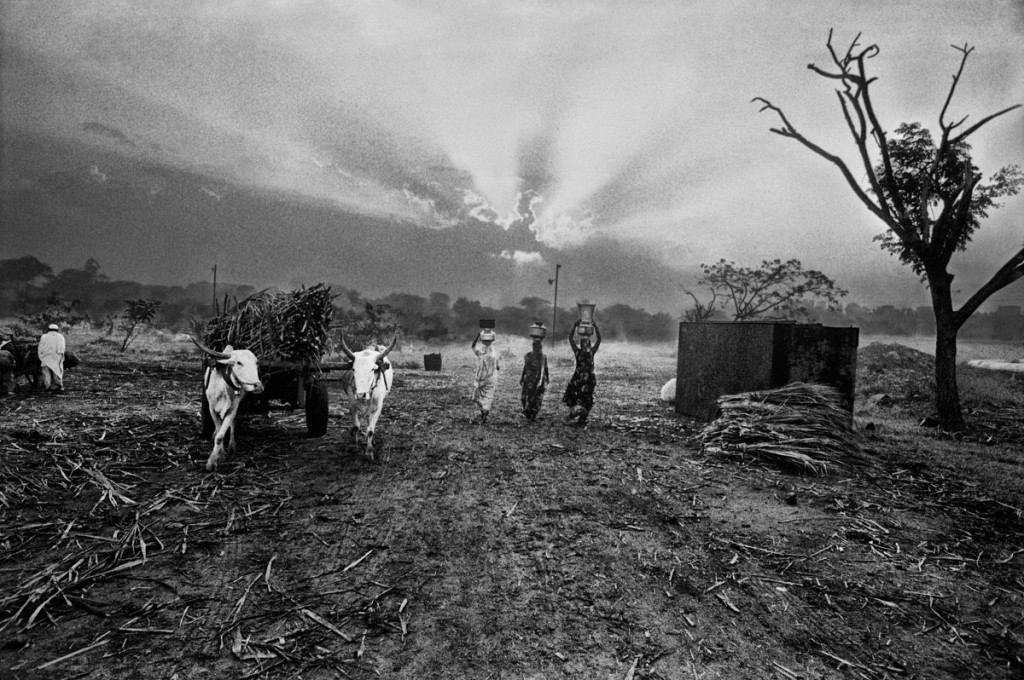
Shahidul: The first thing that I think we need to recognise is that people are the most powerful entity and we need to recognise that and celebrate it. I think we rely too often upon the powers that be to grant us permission. I think it should be the other way around. We need to remind governments that they are servants of the people and I think it?s that people power that needs to be harnessed. The unfortunate thing is that our politicians have moved far away from the people including the Left. I think it is time that people took on that mantle and began to remind the politicians and the establishment that they are secondary, that their primary role is to represent the people, which they have completely forgotten. Crossfire is a very good example of that in the sense that they closed us down. But we were prepared, we took them to court and it was the movement of the people on the streets that I believe gave the judiciary the strength to challenge the government and to prepare to give a ruling against the government. And the government had to back down. Generally that challenge is not made. When the government in power does what it does, you play safe, we give space and we back off. Sure there are times when you have to make tactical…
Manik: So we might as well take preventive measures? What about small organisations, for them resources are a big problem?.
Shahidul: Firstly, I think I need to remind ourselves that it hasn?t happened overnight. I have been fighting this battle since 1984 and it?s been step after step after step. What we have done is to be very strategic from that period onwards. So 30 years of fighting in the streets has given us this position. Our strength comes largely from the goodwill that we generated over these years, the trust that people have in us. And I will come back to that written statement. I think the real power base is the people and if you can harness people?s power, you have a bigger power than anything else that can…they can do against us. You mention lawyers; you mention all the other things? very true. But I think it?s a question of being strategic. You fight to win and if I am entering into battle I choose photography because it is the most powerful weapon. I will choose whatever tool that is appropriate at a particular time which includes, engaging with lawyers, developing strategies which includes doing your own research doing your homework, making their life difficult. You need to fight from a position of strength, that?s what gave me that strength. Now they have strength in terms of resources, they have strength in terms of muscle, we have strength in terms of belief, and we have strength in terms of solidarity. And I think you need to harness those and work effectively. We have done things on a long term basis which goes beyond this, for instance introducing email to Bangladesh. That is far more far-sighted than many other things that we have done. That today in Bangladesh we have a lot of tools at our disposal? has to do with the fact that so many years ago we had that foresight to develop a technology and means to do this.
What we also have are the tactical, financial decisions that we made. For instance we are not an NGO; we do not depend upon funding at the end of the month to pay our salaries. We feed ourselves. It?s difficult, we pay taxes, and we have all the other problems that come up when one runs a business institution. We have a very problematic situation where, we as an activist organisation do a whole lot of things which certainly does not earn money but loses it. But we also want to be financially viable so we have to find a fine balance in terms of how we… but this balance has actually allowed us that freedom that the NGOs and the civil society organisations in our own country do not have… and so as a media organisation it is important to be free of those patron organisations, to be independent of corporations. Until you are able to do that you will really ?do not have that solid grasp of? strength.
Manik: You recently edited The Birth Pangs of a Nation and this book is about the partition of 1971? a lot of bloodshed. Did you face any trouble in editing because in the past you were also detained by the BSF for your long term? Brahmaputra Project . Once you come into the limelight, there?s always focus on you. So did you face any trouble while editing this book because it has a lot of historical relevance?
Shahidul: Yes I did.
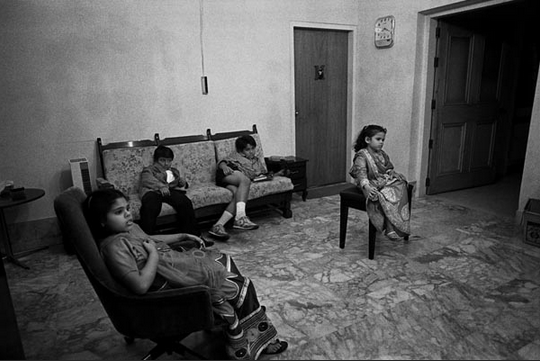
Manik: What was it?
Shahidul: Oh. Firstly I would like to remind us that if you have done things right you probably will have those problems. I would much rather have those problems than be irrelevant. So, I take on those problems willingly. Having said that, in this particular case we were working in partnership with the UNHCR? and working in partnership with any organisation that pays the bill has its own problems. I remember for instance, in the introductory essay that the UNHCR was very heavy handed and they didn?t want to displease Pakistan. In the process, in their version of the introduction the word Pakistan only came in after 1973.
Manik: What?
Shahidul: It?s bizarre. It?s as if millions of people had died through some fictional…
Manik: and everybody knows about it??
Shahidul: But we kept our stand and that I think is where the problem started.? As soon as the people who called the tune begin to go out of line, we give way?we often give way. I think it is? if one is prepared to hold ground, if one is committed to one?s beliefs, and if one is prepared to recognise it? okay at the end of the day it might not happen, we lose financially, you take your risk. I think it?s worth it. At the end of the day, there?s always a risk, and risks have to be taken. The safe way is very rarely the effective way.
Manik: Was there any friction from the government?s side?
Shahidul: No, not the government!? The interesting thing was, we didn?t bring in the government at all we just did it, completely ourselves. And had it been the government, they would have of course wanted to bring in their version of things and all that. But interestingly enough, once the book came out, the Ministry of Foreign Affairs bought 150 copies?
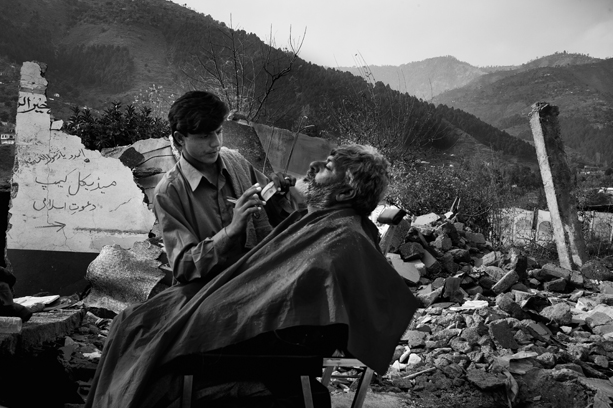
Manik: …as a gift.
Shahidul: Yes exactly. They recognised that this was a quality product and rather than try and ban it?
Manik: Do you see acceptance coming from the other end?
Shahidul: I don?t know whether that is good or bad, because that also suggests that you are becoming establishment, which is worrying. But to be fair, I think they recognise that we have a huge amount of goodwill and at the end of the day, we do quality work. I think that is more than anything else our strength.? I think if you produce consistently quality work, that is the best answer to anything your position can give you. And we stick to that. High quality work, consistently, uncompromisingly. And at the end of the day, quality speaks for itself, because if a book such as this is bypassed, it?s their credibility in question, not ours.
Manik: How has been the whole journey since ?84? Obviously mistakes were made, realized and then improved?
Shahidul: We have very, very high quality control standards and to the extent that there are many situations where having those quality conscious positions makes us less cost effective, loses ground, makes it difficult and also causes waste. But that is one thing that we hung on to, come what may. That?s one, the other is, that we now have a much wider resource pool than we had before. The students who have come out of Pathshala are very important resources for us. This time at Chobi Mela, the curatorial team is much broader than it has been. A lot of printing and other things are done by students and former students who take on that role. When I started Drik, I had to train people from zero, now I don?t. I can pick people whom I have watched for three, four or five years, and I can find the best from that lot and bring them in? and there is a great sense of ownership that they also take on. There are certain areas where we failed, where we continue to fail. We produce fine photographers, but we failed to produce fine curators, picture editors, photo researchers, critiques and writers in photography. Most of the people who join us at Pathshala want to become photographers. That?s their goal. They don?t realise there is a broader space that needs to be dealt with. It will take time. As it was with photography, when we began it was very tough? but at least that central basis was there? but now we are building blocks side by side. If we take time, I mean right now, we are embarking on a very careful program to build the picture editors of the future. We work very hard at developing critical practice, in terms of analysis of photography, writing and things like that. Again it will take several years?
Manik: So have you started working towards it? Have the new courses begun?
Shahidul: They have begun. Not only have they begun, I don?t know how we do it? you look at the two issues of Kamra that have come out. These are publications in Bangla, they have been brought out by former Pathshala students. Now that was something that I had nothing to do with directly? indirectly of course I did. But these former Pathshala students who have taken it upon themselves to write their own history, to do their research, to write in local language, I think those are what will change things.
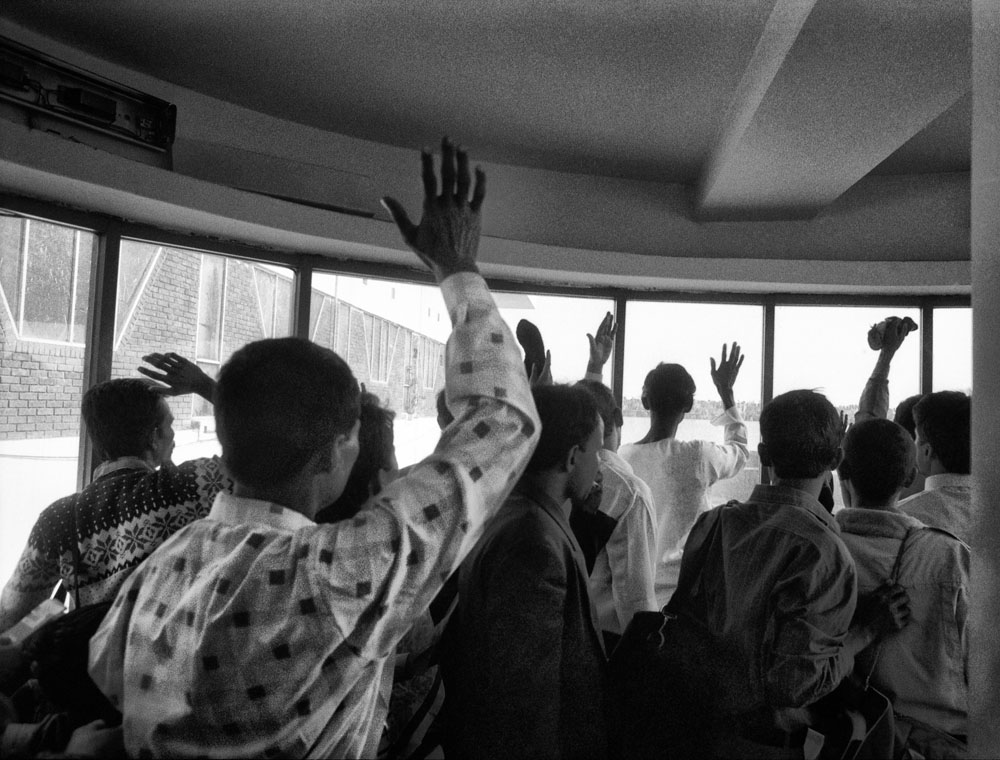
It is only when migrant workers are about to board the aircraft that they realise what they are leaving behind. They wave and they wave at unseeing faces in the distance, but are herded in by the crew. ? Shahidul Alam/Drik/Majority World
Manik: That’s a good start! Also if you could talk about the international campaign that was started when the detainment at India-Bangladesh happened. So how important was that? And what was the campaign about?
Shahidul: Well it was pretty important in the sense that it meant survival. In the previous six months to when I was arrested, 96 people had been killed by the Border Security Forces.
Manik: ?which happens till date ?
Shahidul: Yes, absolutely. They are a very trigger happy force. When I knew that I was getting? that I was getting pulled in, the first thing was, when I had guns pointed at me, I was not going to do anything silly. So it was a question of outthinking them, not out manoeuvring them physically. I knew? when I went near that gate? that I was going to get pulled in. So I had worked out a strategy in my mind. I was?I played the race card quite frankly. I was not a Bangladeshi photographer; I was a National Geographic photographer. Luckily I had all the cards and everything with me? I spoke not a word of Hindi, not a word of Bangla? I used my most posh English at that time and everything else. But I did do a few smart things. Once I got them on the defensive, I didn?t want the jawans to do anything silly. I wanted to make sure that I could talk to a higher ranking officer….where I felt that better negotiation possibilities? jawans are the ones who are trigger happy, so once I am dead there?s not anything I can do about it. So the first thing I did was to ensure that jawans were rattled enough to let me make a few key phone calls. And in those few key phone calls, I rang my partner, gave her specific instructions?told her where I was. I kept my little microphone on so there?s one feed going to the camera, I kept my mobile phone on, so there?s a second feed going through the mobile phone and everything that was being said was being conveyed through that open…
Manik: Who did you call?
Shahidul: My partner. And I gave her all the coordinates, I told her who to ring, what to do and kept that from the jawans?
Manik: And the jawans were next to you?
Shahidul: Yes, I was speaking in English..
Manik: Which they did not understand?
Shahidul: Either they did not understand ?but more I didn?t talk to her remember, I was talking to my National Geographic editor?. which she caught on very quickly as to what was actually happening? I mean she is a smart, smart woman; very quickly she worked out what was going on? and I gave her all the? this where I am, here?s the officer, name of so and so and whatever. I gave her all the key details?so all that was going on. What we do have is a very strong international support base. She knew which buttons to press and once those buttons were pressed, the pressure came from everywhere? from the newspaper she wrote for, New age, particularly the editor, from the ex foreign secretary, from the United States, globally, and from within India. There was a massive campaign within India. And I recently spoke to one of the journalists who was involved from the Indian side of it… he was telling me how the IG police was so worried that he was getting into trouble because he accidentally captured someone that he simply couldn?t handle. And the interesting thing was up till now I am the only person who has been handed over at night. The agreement between two countries does not permit handing over at night.
Manik: When you say international support,? whose support was it, the photographic community or otherwise?
Shahidul: A much bigger community. The photographic community played a very important role, but it was primarily the journalist community worldwide ?but a whole lot of people from all over the place ? absolutely from highest levels ?putting serious pressure on the Prime Minister of both countries and ensuring that nothing silly would happen.
Manik: After being free, what did you do about this incident?
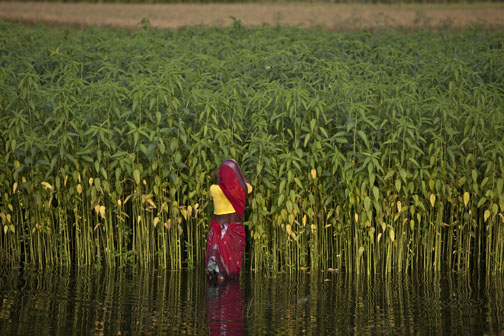
Shahidul: I suppose it?s safe to say it now that I actually recorded the whole thing and I actually videoed a lot of the conversations, the actual signing of the deed that handed me over? I have got on record. I used one of that footage in my Crossfire exhibition as a follow up to it. And of course I have written about it. When I came back, I debriefed Pathshala telling them how it was,..I didn?t tell them everything because it was unsafe to… but well you are absolutely right, as an activist, I took up this as an opportunity of being an insider in that situation. When I got released, I got arrested by the BDR in Bangladesh. Yes and I spent one night in their jail. And I have photographs of that.
Manik: So now what?s the next step?
Shahidul: Well, I am moving away from that. Not because that is unimportant but because I think there are bigger issues. Crossfire was the next thing that I did. Now I am working on disappearances and on the twelfth of June, I plan to put together an exhibition on the disappearance of Kalpana Chakma.
She was the Hill Woman?s Federation?s president. It?s unbelievable that a nation that has sacrificed so much for the right to speak its own language, suppresses the rights of others to speak their language, in my own country. So, the Chittagong hill tribes are still under occupation. The indigenous people of my country are not even recognised as being indigenous.
Manik:Do we get to see a photo exhibition on the same?
Shahidul: No, no… it is completely different. What we are doing in? it?s a lesson that we have learnt from Crossfire. The fact that it was so phenomenally successful, had to do with I believe, the fact that we took a very different aesthetic approach. It wasn?t simply the fact that we were putting up an exhibition; it was not a conventional exhibition. The images were far more ephemeral, they were alluding to concepts, imageries that were much less literal, which gave us a lot of space. It also meant that the work? could go to museums, could go in many, many different ways and was beginning to be used very interestingly. Now, for Kalpana Chakma?s case, she was abducted nearly 16 years ago. In fact 12th of June will be the 17th year of her disappearance. Till date nothing…no action has been taken against the military who abducted her. And those continue to be the taboos in Bangladesh. Right now we have a fair degree of freedom of press. You can criticise the Prime Minister, you can criticise the ministers but you still cannot criticise the military. So, I think those are the areas of contestation? and this is a very clear area where this woman was abducted by the military and nothing has been done to make the military accountable? so, that is what I am hoping to do… but I am doing it again through a very different aesthetic approach. So what I am doing is, I am collecting forensic data and using electro microscopic high quality imagery. I hope to create beautiful images made from forensic information, using the perception of validity of science. So I am using scientific methodology to give it that aura of validity. But using it to supplement the fact that this entire case lies on very strong circumstantial evidence and I want to put it all together? again we work with social scientists, with lawyers, with activists over a long period of time and we have a very strong case. So the exhibition will just be the tip of the iceberg, there is a very strong base underneath and we are preparing for all the actions? at least many of the actions that might take place to thwart it.
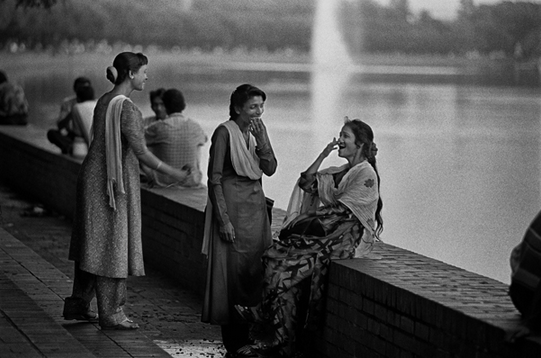
Manik: So this is your next project that you are working on?
Shahidul: ? June hopefully.
Manik: Interesting? so what has been the most challenging project for you till date?
Shahidul: I think what continues to be? is the personal space. The things that we have talked about in the grander scheme of things of course have many ramifications? but to a large extent they are much more tactile and can be grasped. The real challenge are the day-to-day things, where we call a rickshawala ?tumi? and a person with a suit is ?apni?? where people within? who help in our own homes are treated as lesser human beings and the fact that in so many ways, everyday we are treating some humans as less than humans.? And yet we never question ourselves, we…consider ourselves to be progressive human beings, who commit these crimes everyday in front of our children, in front of everyone without ever questioning the moral position and that we take. That remains to me the biggest challenge. I think until I can hold the mirror to myself and ensure that the face I look at, is a face I can look up to I have not succeeded?
Manik: If I ask photographically?
Shahidul: That is still what I hope to?
Manik: I still remember the example with your mother and the?
Shahidul: Yes exactly. And that for me is a pertinent example. Right now I am doing a story for an American magazine where I am looking at Muslims who played an exemplary role in someway. One of the things, I am not a very religious person, but I am conscious of the Islamophobia that exists in the world today. So, I challenge that position and one of the things that I am looking at is, the role played in building a particular society. And one of the people in Bangladesh that I am highlighting is Majeda, who feeds me everyday, who cleans our house and for me is a great champion.
Manik: At ChiangMai Documentary Festival,you are exhibiting your body of work ? My Journey as a Witness. Could you share bit of the interesting experiences about the whole, and also…did you curate the exhibition?
Shahidul: It was essentially? what I did is I put together a shortlist of material. To be honest it was also a question of being pragmatic, there was a limited amount of time…I had to do a whole lot of things and the images that were easiest to hand over were the ones I handed over. I am not saying that it was necessarily the best choice, and I had to leave it a lot to people at this end because I like putting together shows that are site specific? I like to look at a space and look at audience interaction. I didn?t have a chance in that case, and I felt? it didn?t make sense to me to make a curatorial decision, where I wasn?t sufficiently versed on the spatial geometry or the cultural space. So while I made a shortlist, which obviously I had a decision over, the rest was left up to people in this end. But what I am trying to look at ?and it hasn?t worked completely in this sense for instance, that single Crossfire image doesn?t really work on its own. It needs to be contextualised and the audience needs to be provided the moment, the reason, the narrative that explains how it is.
My work is very linked to the narrative. But something has to come across. What I did do is, once I came here, I rearranged it a little…gave it some sort of a logic. But there are for instance ?phases of my work. For instance, if we look at work from the struggle for democracy period which is the traditional black and white documentary work that has been practiced in Magnum if you like? then there is the Brahmaputra period which is quite different, then there is the Crossfire period…but the Crossfire doesn?t really… we don?t see it in that sense , but if one knew enough about me, one could look at the shifts I have made as an artist and as a practitioner? which I continue to try and do, what I am doing with my Kalpana exhibition coming up.
So in a way it comes back to what I was talking to you about, not simply photography ?it?s a question of what type of photography, what type of engagement? and it?s the engagement at the end of the day which is what it is about.? And the photography has to follow. If one day, not showing pictures is the most effective way of doing it, then that is what I will do.
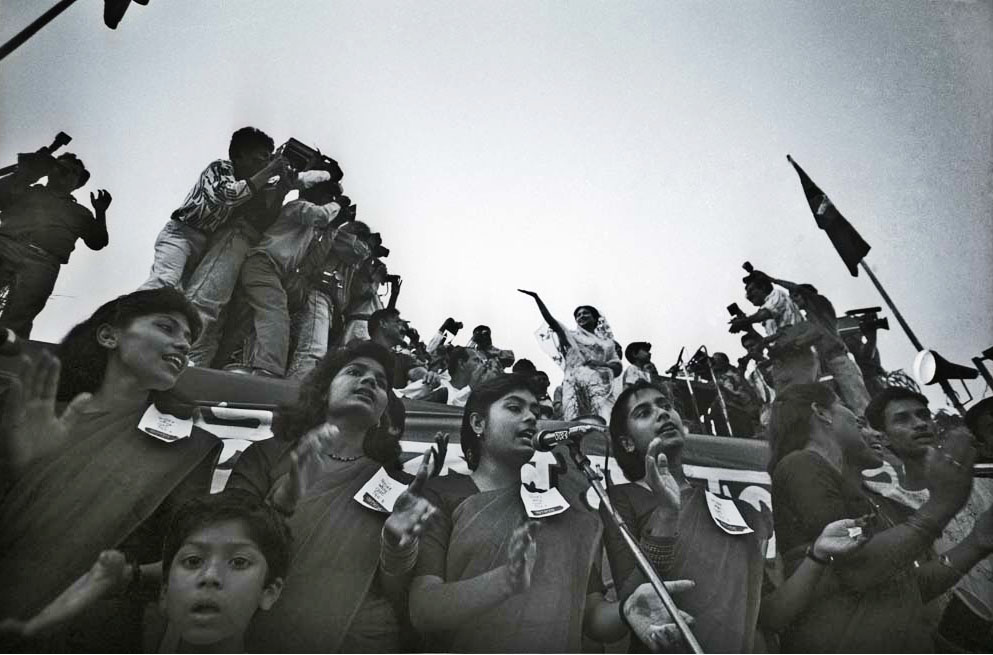
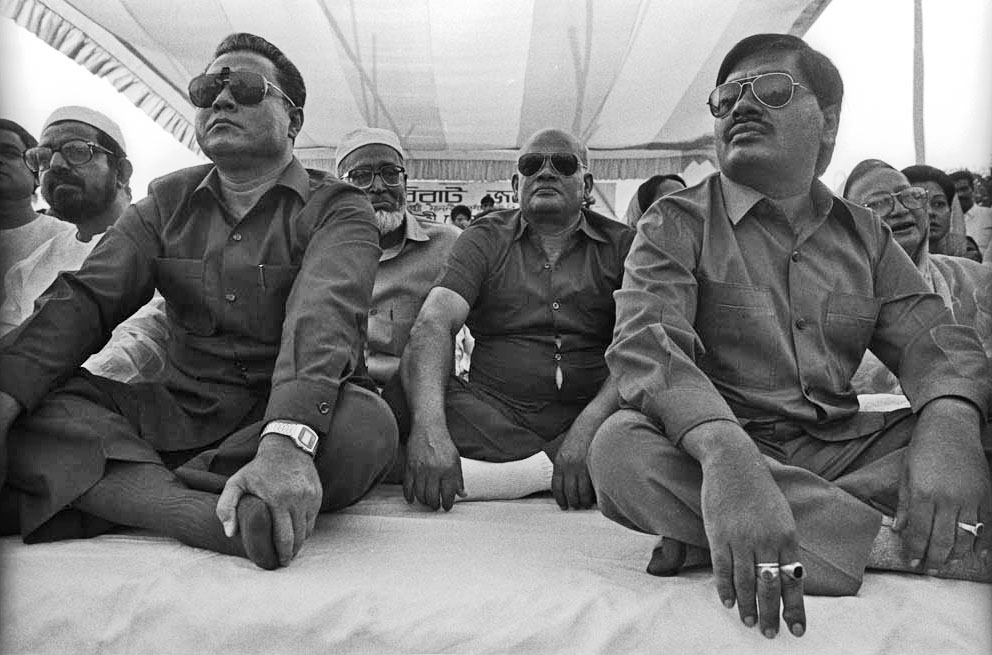
Manik: So is ?My Journey as a Witness? an ongoing project? Or just the book?
Shahidul: The book I felt was needed at a particular point in time. It actually started off as a book of written essays. Because a lot of people felt that many of my writings should be put together as a collection of essays.? And that?s how I began my manuscript, and it was going to be brought out with some images that fitted in, but largely a written book with perhaps some illustrations. When SKIRA approached me to bring it out they said? and I feel rightly, that it should also take on my photographic work. So the book became a much bigger thing than what was originally planned. And in the process, when a book shifts from one form to another there are other decisions that come into play. The key essays which aren?t there were taken back because in the grammar of the book, it did not fit. So it became a different book if you like, but I felt it was important. Really there had never been outside of that, a book that documented the underlying process of that photographic journey. And for Bangladesh, certainly for myself, I felt it was necessary. I think for students of photography it will be a important book to look at, because…not so much for pictures but because of the undercurrents.
Manik: Now when we are talking about the books, you were also among the top ten curators for the Blink series where it was about 100 contemporary photographers. Personally, you like being a photographer or a curator? how was the whole experience?
Shahidul: That, the book by Phaidon ,was for me a very interesting exercise at different levels. The first thing was rather surprising because, when they sent me the letter, they invited me to curate, and sent me a contract, and that contract said that everything belonged to them. So of course I wrote back a letter to say that no way I was going to be involved in a project where I was going to handover rights to my material. They wrote back straight away: Oh sorry we sent you the wrong contract, here?s the right contract.
And you know I have had this happen so many times… they will try it on, they will send you a contract where they get everything on the off-chance that you don?t know your rights and you will sign away everything. So it?s a question of being constantly alert. I mean, we are under this myth that these prestigious publishers are moral and ethical and all those sorts of things. They will take your pants, if they get the chance. So I use that as an exercise, to demonstrate to my students what can happen. The fact that you can also fight your ground and the fact that okay it?s Phaidon and they pay you well but, if you hold your ground and if you know what your rights are, you have firm solid ground to stand on…
Manik: … so, what was the updated contract?
Shahidul: That I own everything, and they still pay me all the things they do. And it be, exactly the contract it should be. Which proves that they have that earlier contract, which they will perhaps give to others? But some poor guy in Bangladesh, who doesn?t probably know?let?s try out a contract with him and maybe he will sign it. And that?s happened to me time and time again. That was one.
What for me was also interesting was, some of the choices that were made during that book was…they identified writers, for the book, but the writings were not strictly about photography. For instance, Arundhati?s piece? she is not a photographer and its not written about photography. But it has very strong visual connotations. And that was interesting for me. I was learning at the same time. But for the book I did serious research and that for me has been very, very useful all the way through. Any project that I do lies on solid research down below. And once you have done that, the ground is very firm. And this is one of the things that I try and bring across.
Manik: So when you were one of the top ten curators, what were the grounds for selecting the photographers and also?were you focusing on selecting photographers from Asia or was it through out?
Shahidul: It was throughout the world. It has European photographers, Latin American photographers, African photographers…pretty much the ten are scattered around, two are from Bangladesh, both of them are students. Largely because?
Manik: Who are they?
Shahidul: Abir Abdullah and Sameera Huque. They are the two Bangladeshi photographers. I started off work by looking at work which I felt deserved to be seen and had not been seen sufficiently. So that remained my primary criteria, within that I looked at work which I thought in some ways was breaking ground in some capacity? either in terms of visuals or conceptually…and I must also admit, I chose work that I enjoyed. So there was very serious work…the two Bangladeshis were both not unsurprisingly linked to ?71? but two very different takes.
Abir Abdullah looking at the more traditional photojournalism genre? Sameera Huque did very conceptual work again in ?71. But she brought in the role of women in ?71, which I felt was a very important thing to bring across. Then it was Pablo Garber, who did a beautiful piece called Things That Never Die. They way he looked at the intimate things that people carry with them… and I thought it was a sensitive subtle moving piece. So there were a whole range of things happening.
Manik: ?and it was again a learning experience because it was one of your…
Shahidul: …completely! I blunder my way through. One of the things that I refused to do is: To repeat myself and, stay in a place where I am comfortable.
Manik: The last edition of Chobi Mela had ?fragility? as a theme. How did that come about?
Shahidul: For a start we did not select the theme. It was an online poll, a collective decision. And I think the reason people selected the word ?fragility? is because we recognise the fragility of our existence today. We recognise that war is ravaging this world of ours. We recognise that ? that they have taken it upon themselves to destabilise large parts of the globe, and there are certain entities that are far too powerful to be allowed to operate the way they do. And that needs to be questioned. So there is that vulnerability that people sense? the fragility of the Earth in an environmental sense? and the fact that we are really doing nothing to curb it is something that bothers us. The economic, that?s the environment we are in, where the big bank robbers of today are the banks themselves ?are all that makes the ordinary citizen feel very fragile. So I think that the term is something that is somehow in all our spaces. For me though what?s very interesting is, the fact that the artists who have submitted? have taken this word and have translated it in a very interesting way. That pulled it in very different directions. And I think that the very interesting aesthetic and political solutions to translate this word in common people?s terms, in terms of the exhibition…the festival itself, there were some things that we started doing two Chobi Melas back? Chobi Mela 5 had 62 exhibitions, which we thought was far too many.? So we halved it in Chobi Mela 6. For Chobi Mela 7 we had far more space than we did earlier? but we kept the number of exhibitions the same? again, so it was a question of giving a lot more importance and space to individual shows rather than try and show a lot of work. We were very careful about selecting which work needed to be shown. Again we tried to identify work that are in some ways? were at the boundaries of expression. We found unusual work, unseen work, challenging work. But for me what was very interesting was out of 35 shows seven were by Bangladeshis, which is a very large number if you think about it for one country. But these seven from Bangladesh were there on merit. We selected them because we couldn?t leave them out. And that is a great achievement for the country. That is an indicator of the maturity that Bangladeshi photography has reached today. But the way in which it was done required a bigger, broader keyhole to reality. Those decisions on the curatorial table were very interesting. The fact that we were able to bring in international curators to work with us in identifying and curating areas? zones of silence like the Middle Eastern photography part which we didn?t know sufficiently. And some aspects of African work, which wasn?t so well known? I think are important additions to this.
Where we also moved were two areas?.the fact that the festival was supported to a far greater extent by Bangladeshis this time, than it had been in the past. This time the Bangladeshis had taken pride in their own festival, taking all that responsibility? but also, the fact that we sent out invitations to 80 schools, to arrange school visits, gallery walks? and the fact that the media came on-board so well. So, I think what is beginning to happen is, a collective pride in what we have been able to achieve, and that I think is a very good indicator for the future.
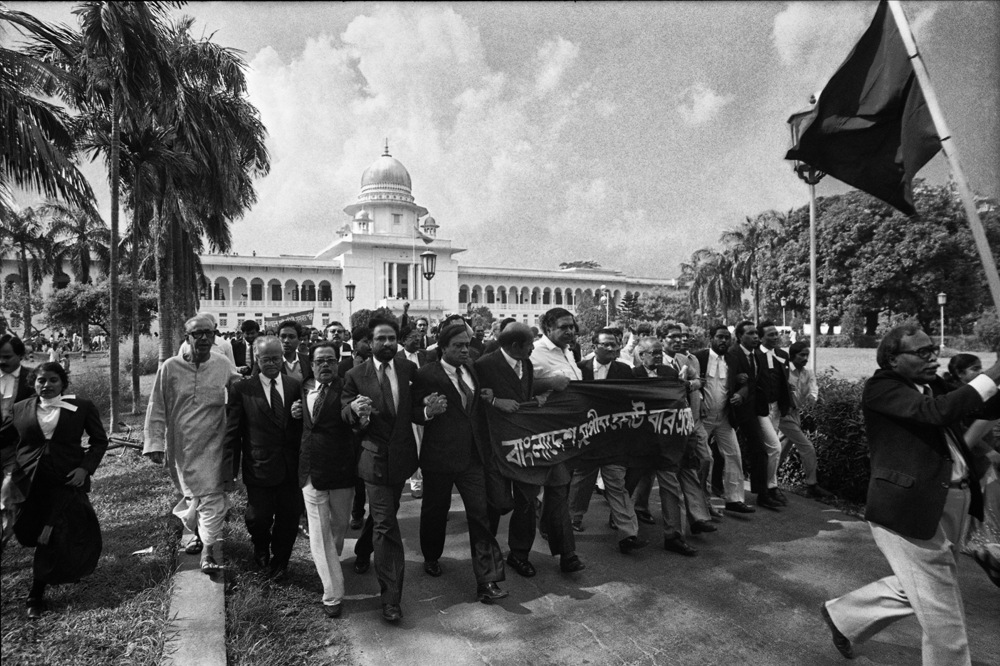
Manik: As a director, did you think certain things were lacking? could it have been improved?
Shahidul: Too many. As a director…you know that?s one of the sad things. You notice all the little faults that take place, and you know that things could have been improved, should have been improved, and should have done it better.? I recognise?
Manik: Some of the big ones, if you could talk about them?
Shahidul: Well the fact that the publications came out as late as they did? because we had planned on having a much earlier cut off point and that I recognise now what had happened. See, we had a bigger curatorial body, and different people were given different roles to play and many of them were dealing with superstars. And some of the superstars took advantage.
Manik: Take advantage as in?
Shahidul: You know…imposing their will upon the curatorial team, making last minute decisions, unreasonably demanding in certain situations.
Manik: When you say ?some of the superstars took advantage? so what would you say to the photographers who were trying to overcome this gulf?
Shahidul: That?s the point I am getting at. You see, that is what I certainly did do but I came in late. Its because you have given a lot of freedom to people, you have got to also allow them the flexibility to follow their own decisions…and these were relatively young people, relatively inexperienced, who were I believe, more susceptible to pressure than a more experienced curator might be. And we paid for it because at the end of the day we were put into incredible pressure which we should not have taken on. The same superstars know that in other situations they would have never gotten away with it. And we should have had the strength to say sorry, we can?t do that. This is a cut-off point; we make the decisions, no further changes. If you don?t hand in by that date, your work is out. We weren?t strong enough in some situations?
Manik: Was it because they were superstars or otherwise?
Shahidul:? It was because they were superstars, it was because some of us were inexperienced ? a combination of the two. Had there been very strong people at this end we would have withstood that pressure. It?s a bit like the discussion we had about the World Press Chair. We have to, in a way we need to absorb that and handle it. This, because we have grown into the curatorial space, new people were given space…we were taking on a wider role. We paid for our own inexperience, but we learnt from it.
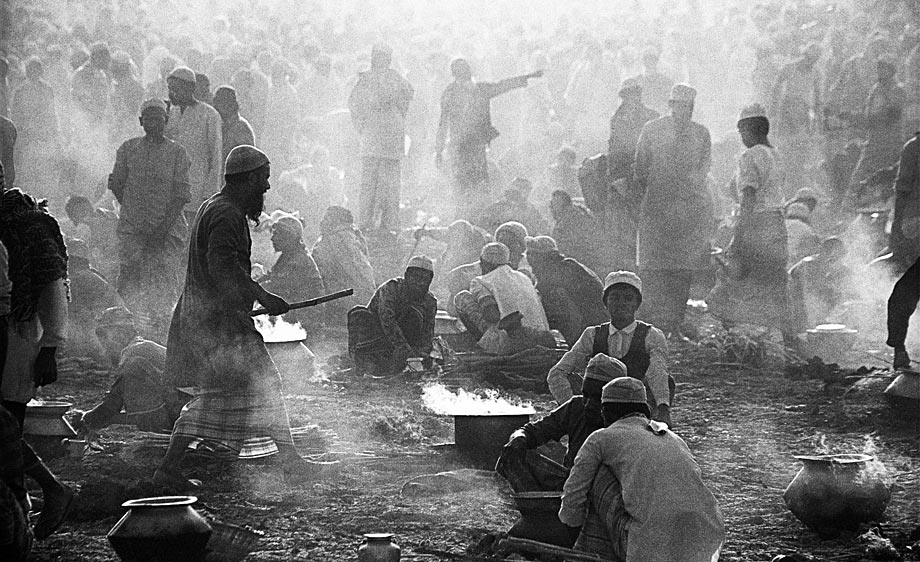
Manik: So the curating part could have been much better organised?
Shahidul: I think it was very good, regardless. And despite the fact that I noticed all the holes, I think at the end of the day it was a fabulous festival. Really well put together, considering, all the things that we went through? it was fantastic. But that ?considering?, it?s not a word we can bring in. So that was an internal decision that we had to make. We have grown as a result of it, we have the paid the price for some of it. I think next time around, those things? the superstars will not get away with it.
Manik: Do you have a favourite though?
Shahidul: Simply thinking about one is a bit difficult.
Manik: I would love to know one…
Shahidul: Sure okay. I must confess to my own biases, I love Eugene Richards. And that work is sensitive, evocative and very timely. What is a personal triumph is the fact that that particular work we were able to get through sponsorship through the American Centre, which is incredible? and that has to do with a decision we made a long, long way back which we have stood by steadfastly: No sponsor has editorial control. Right from day one, that is the premise on which a sponsor comes on board. You can be a part of it, but have zero choice in terms of content. And that is why many people are angry? it made some people very irate because they have sponsored the festival,? and their favourite artists has been dropped? their country has been dropped. Sorry, it?s tough. Sponsorship does not lead to curatorial control, the curators have complete freedom. And that?s what we did. So, we were able to show work that was so critical of the invasion in Iraq using money from the same capital, the state department.
Manik: ?which was a very interesting way?
Shahidul: Yes absolutely. So that?s…the work itself is very rich…
Manik: Did he attend the festival?
Shahidul: He wasn?t able to, and that again is one of the realities. Eugene has great admiration for Chobi Mela?and I know he wanted to come. He said : listen…in these days if you get an assignment, don?t let go. Times are tough. And I can understand that. He wanted to be here, he wanted to be a part of the show, he wanted to be a part of the festival, but we all need to make a living.
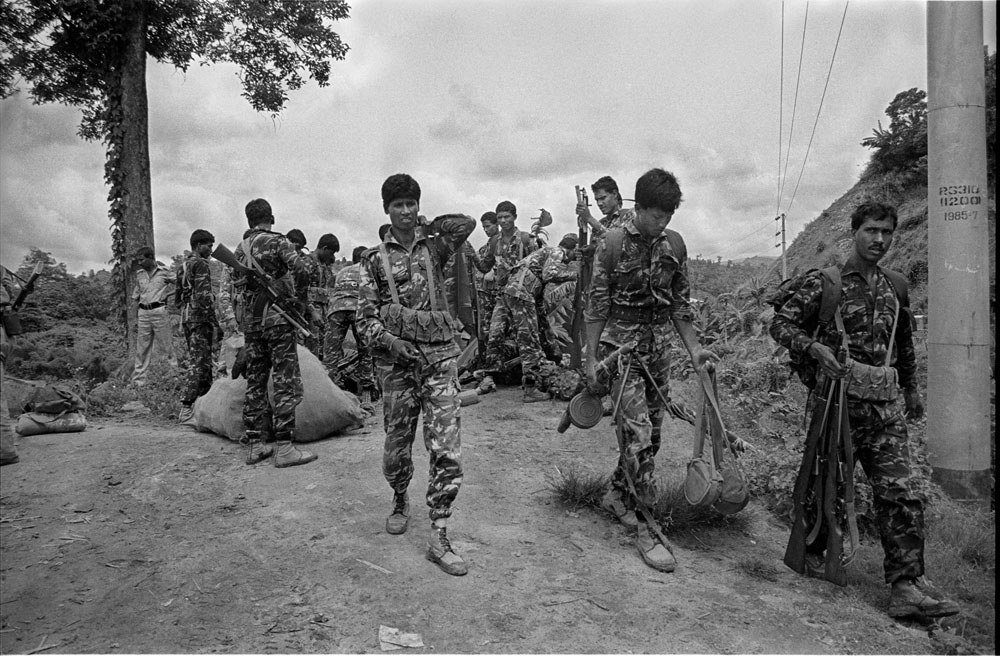
Manik: Now we are seeing a lot of photographers coming from this part of the world? Sohrab, Wasif? and many others .This is the emerging emerging generation of? our photographers. So how do you feel about this?and what more can be done to encourage more photographers to do such high quality work?
Shahidul: Firstly, I think they are more than just photographers. I think they have taken on a much bigger role. In fact I think that broader role is the other more important role of a photographer. I think that one of the mistakes that we have made both in the photographic role and also in our approach to photography is in suggesting or implying that taking of the picture is what photography is all about. I think photography is a far bigger animal than that. ?Wasif and Sohrab, in terms of their other roles. But they at a young age have begun to give back, and that is important. In my own case I have had to make very clinical decisions. The reason, the fact that I have set up three ? Pathshala, Chobi Mela and Majority World, besides Drik, has meant that I have not been able to follow my own photography? to the extent I would have liked. But if I were to ask myself the question as to why I took on photography in the first place?if changing society is what it?s about, I have continued to do that.
Why should taking pictures be the only way to do it? If through a multitudinous type of ways I can affect that chain, then that is valid. The fact that I enjoy photography, the fact that I miss the fact that I could perhaps have become a better photographer than I am is a personal loss in some ways, but I think the returns are worthwhile. But having said that, I feel had there been more people doing what the Wasifs, and the Sohrabs are doing they would have been themselves? been more able to do more of their own creative work. And that is something that…but I think one takes it on as one goes.
Manik: And what more can be done to encourage more photographers??
Shahidul: I think one very big area of contestation has to be visual literacy. It?s not even photography; it is visual literacy in a much broader sense. Our lives are so influenced and shaped by images in all sorts of ways. Images tell us what we should wear, how we should look, what sort of homes and cars and lifestyles that we should aspire to, what sort of relationships we should have without us ever having being trained to question that imagery ?and I find that criminal. I think we are bringing up an entire generation of people ?where we have not taught them the basic skills to deal with the most impressionable medium that influences them. We teach them Arithmetic, English and Geography yet we don?t teach them to read images. I think that?s hugely irresponsible of us, so I think visual literacy should be a core part of elementary curricula. It should be taught to children as they learn to walk, as they learn to eat and everything else. But that will also have an impact on photography, and where it will also make a difference is?where today the brightest young photographers are most frustrated. There are outlets ?but these are so limited because within our own countries we do not have the picture editors, we do not have intelligent people? writing, thinking photography. So you have bright young photographers producing powerful work which is dismissed, not understood, not well utilised, and I think that must be hugely frustrating for photographers. So what, we are now working towards is building the next generation of critics, picture editors, picture researchers, curators and writers on photography.
Manik: Speaking of international magazines, they prefer sending in a photographer from New York, for an assignment in India or Bangladesh or Nepal…rather than picking up a photographer locally? why do you think this is the scenario?
Shahidul: They play safe. Because, if it?s a picture editor assigning someone new, then while the assignment is very important for the photographer, it?s also important for the picture editor? if he or she gets it wrong, his or her job is on the line. They are very conservative; they are not prepared to take those risks. The only reason now they take on the local photographer is: they know that their work is good or it?s cheaper. They are locally available, they know their context…the local photographers get that job now because they can?t be ignored ?not because they are being preferred. I don?t see that changing in itself, because that mindset has not shifted. If you look at the power chain between let?s say a Bangladeshi photographer in a village in Bangladesh taking a picture of a farmer in the field and at the other end the picture editor of the New York Times desk, the person who has the most knowledge about the situation is the farmer..
Manik: Exactly…they can connect with their subject much more than anybody coming from outside and documenting it.
Shahidul: That farmer, himself is the most knowledgeable person about the situation. That farmer has the least power in that chain, that farmer has no say on what picture will be used, how it will be used ?how it could be contextualised or what the statement should be. The person who is the least knowledgeable is the picture editor in New York and that is the person who is most powerful in that chain. While we have this inverted power structure, this will continue. So I think the way to change it is not to expect them to change for us, but for us to create better alternatives. I think that is? why do we depend upon the New York Times to be telling our story? We need to be telling our story ourselves. And at one stage our publications need to have, the credibility, the importance, the reach?that we can counter the statement that they are making. We do not need them to be nice to us and generous to us and create opportunities for us?its about time we created opportunities for ourselves.
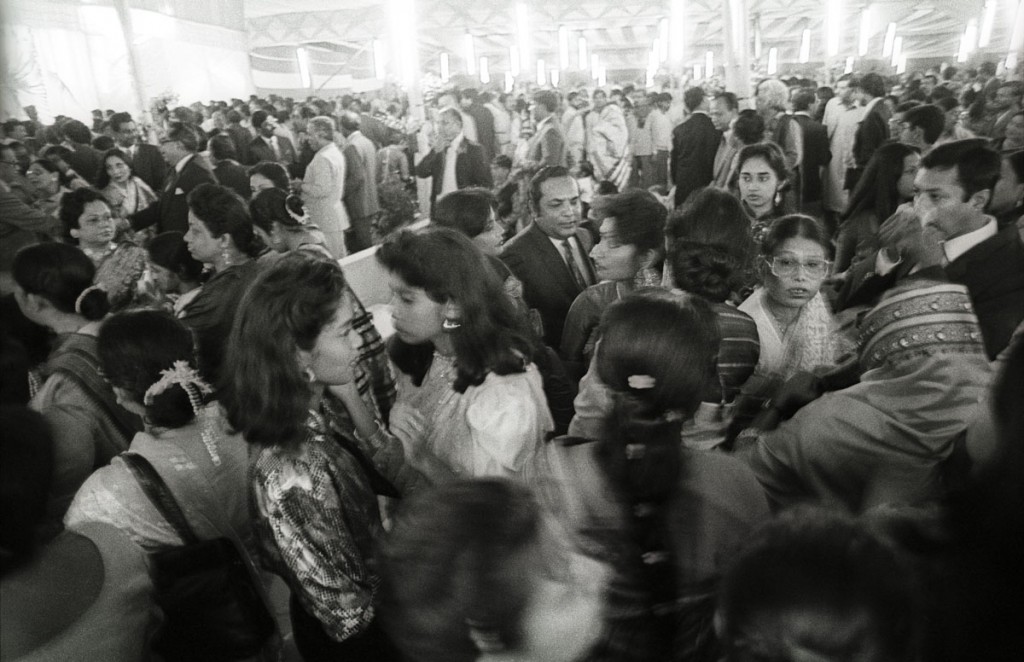
Manik: Okay, I get the point?
Shahidul: …and to add to that I think what you are doing, your magazine, the online publication, the many other things that are beginning to happen today are part of that struggle. I think we need to create enough of a base for ourselves that we do not always need to be looking at the North or the West for inspiration.
Manik: This is just a start, there are a lot of things happening? like, Photo Circle from Nepal, Drik from Bangladesh, Nazar Foundation from Delhi…each of the organisations working on the local level, to actually promote and support photography. What do you have to say about the whole initiative on the personal front of the each organisation? And what more can we expect in future?
Shahidul:? Certainly without global champions, it can never work. I know a large number of festivals and quite honestly even here (Chiang Mai) the festival that we see; I don?t really see that much of a local initiative or involvement. And unless that happens…it has a limit in the future. I think the fact that you have organisations like the ones you mention, taking that role is what will make those organisations much stronger. I think at some point, people around them need to take ownership, need to wake up and put their money where their mouth is. They need to stand by them. I think it?s still ironic that we make our names in our countries not because we have done good work here but because the Museum of Modern Art has recognised us, something like that. I think the colonial legacy needs to be shaken off without a doubt, but it will not happen by itself. And I think, one of the things that we sadly need to have more of, is pride in ourselves. One other thing that needs to happen, which is beginning to happen is?us working together; the collective solidarity that we have. If we look at India, Pakistan, Bangladesh at a personal level…at a professional level, we work together, we have a solidarity, which our governments do not have. And I think we should have enough of a base, enough of a solid base, to tell our governments that they have become irrelevant. That we will decide where we are heading and that our collective strength is much bigger than their very narrow minded, short termed political agendas that keep us in strife. I think we need to reach back to our roots. I think we need to look ahead to our possibilities, and I think we need to believe in our selves. And we already do that, its time our time our governments began to.
Manik: Photo Circle and Pathshala do a lot of exchange programs. The last one was when a couple of students were sent in from Kathmandu to Dhaka? are there other such exchanges planned?
Shahidul: Of course. One of them is using online. So for instance, Hasib from Pathshala is now teaching at a University in the Philippines as an online teacher. Shehab is teaching and doing his Masters at the same time in Australia. Certainly, Tanzim and Wasif and myself, we have been doing workshops in India. Raghu Rai and several others have been doing workshops in our country. So, we are beginning to make those things happen. But I think there is something else that needs to happen. I touched upon very it briefly today. Our struggles are still very city based, very middle class and I think it needs to be broadened a lot within our own communities. It needs to be something that the wider public can engage with. And unless, we ourselves can overcome the class, the caste, the economic divisions that we have, we cannot believe in curing half of our problems.
Manik: The rickshaw exhibition, the mobile exhibition is one of the very important things that happen at every edition of Chobi Mela. And the main aim is to reach out the common man, who is not directly connected to photography. So do you think that there are more measures that can be taken, probably by you as a founder of so many initiatives personally, or couple of other organisations if they can play a part to actually reach out to more and more audience…
Shahidul: Well firstly, I think, alternative practices remain alternative. We have to mainstream it. We have to engage?mainstream media is one of the most powerful multipliers and we cannot ignore it. For Chobi Mela, okay we have those ricksha exhibitions, which is still within Dhaka you know? so how much does that actually reach? We have done a few small exhibits outside in the villages and wherever…but again it is the tip of the iceberg. We need to ensure that mainstream media takes it on? that the average person can connect in a far different? and one of the things we are doing, is this rural visual journalism program. We hope by the end of 2014, that we will have a correspondent in every one of the 64 districts of Bangladesh. This is something I believe we can replicate. Until that ordinary person has a voice, and we ensure that the voice is disseminated, we have only catered for ourselves. While Chobi Mela is a wonderful thing to participate in, one cannot ignore the fact that it is still city based, that it is still biannual, that it is still concentrated on a few elitist groups of people who were able to participate in it. That needs to change. But what I am really happy about is the fact that Bangladesh television which happens to be government? terrestrial? the only terrestrial channel? they have taken it upon themselves, to make programmes on Chobi Mela on their own initiative. I think those are the things that need to be expanded a lot more. And one of the things that I am working on with, people around me is a regular programme on Bangladesh television. I want to do it on the radio, and things like that. It becomes something that has a far more expanded base.
Exhibitions are elitist things. Fancy galleries, good shows, they are great for our ego. At the end of the day, they do perform certain things, because they do need to influence decision makers. You have to be strategic. Well it does not reach the average public.
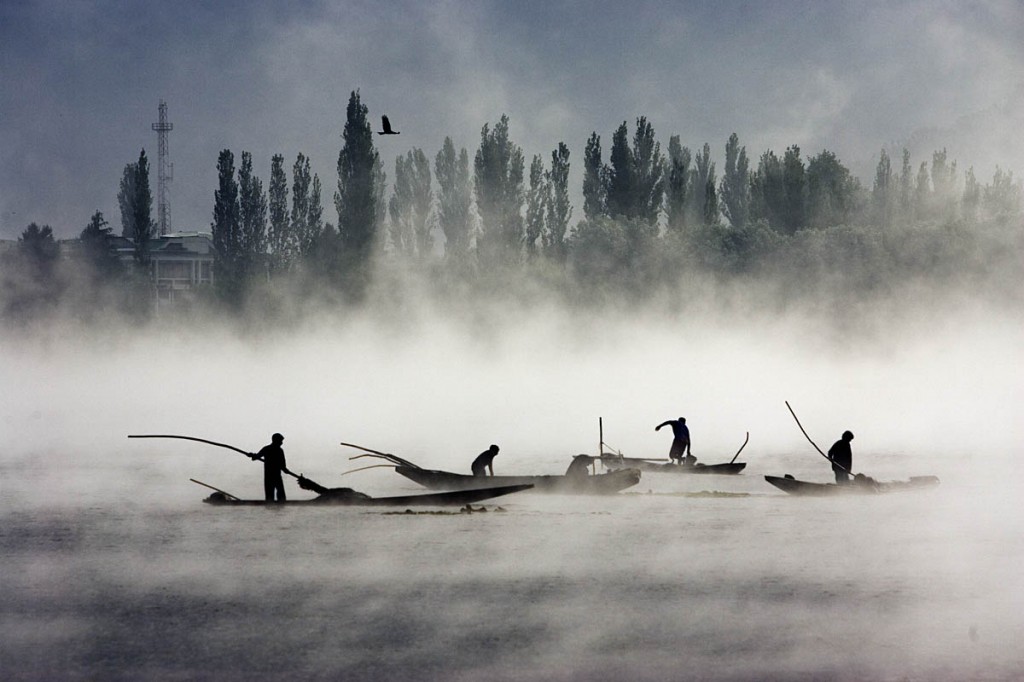
Manik: In my previous interview with Christian Caujolle , he said and I?ll just quote him… ?Bangladesh is such a beautiful example, probably one of the strongest in the world for documentary photography?? What?s your take on the comment?
Shahidul: I think that reflects the dearth of documentary photography practice worldwide, as much as the strength of Bangladesh. Sure Bangladesh has gained and done good work but I think there?s a lot more to be done in Bangladesh itself. And one of my concerns is the demise of photography itself. The fact that it is no longer fashionable to be politically engaged, that it is pass? to be an activist , that posturing has become so much more important than substance. I think this is a problem worldwide. And it continues to be a problem in Bangladesh and while Bangladesh has done well in relative terms, Bangladesh itself I believe has a long way to go. And I think it is only when the average person is able to engage without prejudice, is able to comment on our practice…in lucid, intelligent and knowing terms. Not that they are not intelligent at this point, it?s just that we speak a different language. And we still happen to be quite alienated from our own people. So we do what we consider to be important stories, we win awards, our work gets talked of by other people. I am interested in my farmer in the field telling me that I am doing an important work and until that happens, this is merely icing.
Manik: What can be expected? what more can be done on the Asian front …
Shahidul: I think firstly…
Manik: ?because also Asia is very big
Shahidul: Yes! Asia is big, very diverse. There is no one Asia?
Manik: Middle East, South Asia, South East?yeah..
Shahidul: I think firstly…better knowledge of each other. Quite honestly, how many Indian photographers are sufficiently knowledgeable about Bangladeshi photographers? How many Bangladeshi photographers are sufficiently knowledgeable about Indian photographers? We know far more about Edward Weston and Ansel Adams, even the contemporary photographers of today. History books have not been re-written. Our curriculum has not been re-written. I think first we need to take strength from ourselves and then from our neighbours. And that has to happen. It is beginning to happen already. There?s still a long way to go.
Middle East is our home. We know nothing about what?s going on in there. China is a nation in itself?phenomenal nation…but very little is known outside of China…and they are all these little pockets? and I think it?s about time we began to look sideways, and that sideways glance will give us more than we can possibly imagine. Having said that, it is wrong to assume that there is such a thing as Asian photography. There will be a thousand flowers, and they will all bloom? each with a different colour and fragrance. And I think we need to give them that space.
We still have that problem of drawing inspiration from the West. And, until a young photographer growing up in our country can find inspiration from the people around them, that shift is not going to take place. And today, that is not there. You go to a bookshop; you look at our literature…even our references! We have to quote Caesar, Christian or someone else. But we make references to what we want to say. It is by quoting Manzoor Alam Beg or Thiagarajan or..I don?t know?Arif…Mahmud or one of these photographers? and it is then, as the way to give strength and validity to our statements. We continue to fall into that old trap.
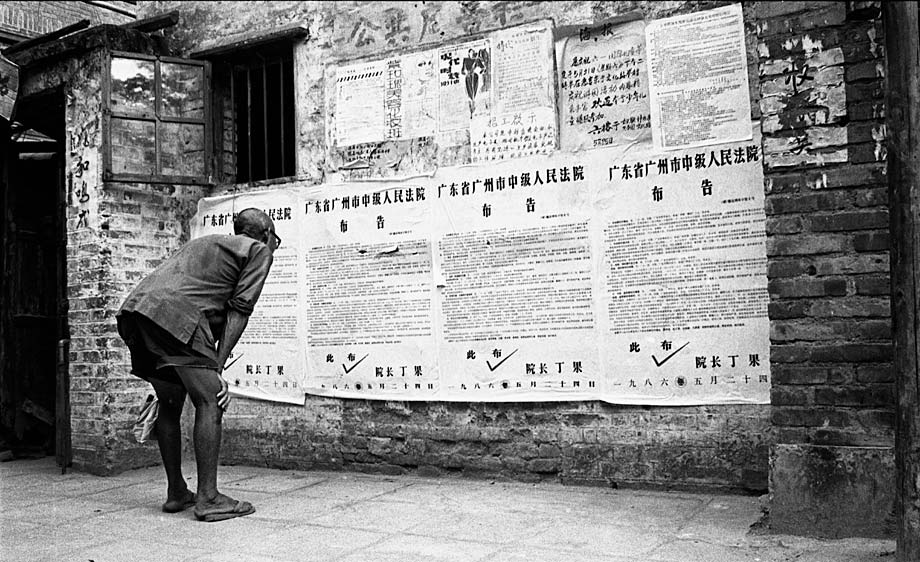
Manik: You believe in this really strongly? that history was written by the powerful. Do you think that is still happening?
Shahidul: Yes, that will always happen. I think that is more to do with Darwin than to do with either history or photography. The powerful make decisions and they make decisions in their own interest. That happens in our countries, never mind elsewhere. We make laws in our countries that favour the wealthy and better off and well established despite all the rhetoric that we espouse and even when the law is egalitarian? the practice is not. So I?m not thinking that human nature will change overnight. I think we need to challenge the power structures and not pamper to the existing status quo.
Manik: There a lot of festivals like Yangon and Angkor ? do you think that these festivals are playing their role, what they actually should be doing? Or is it just another photo event?
Shahidul: I think these festivals are important. And certainly they have made a difference. And apart from anything else, it has allowed a form of network which we did not have before. Many of these young photographers that we are talking about have met in these festivals. They have shared ideas, developed friendships, gone on to do a few things together. So as a nurturing space I think they are very important. Many of them struggle, many of them are poorly supported…and I think they do well within their limits. There is much more to be done without a doubt, but these things will not happen overnight. I am much more concerned of the over reliance on these festivals to make a difference. I think it?s our day-to-day practice that has to change. And that is where we still remain, way, way back. We are still communal in our approach, we are still caste ridden, class ridden, hugely racist in our every day life. And we cannot expect small little pockets of resistance to change our nature. I think as people we need to take on board very different lifestyle and ideology and philosophy… which we have talked about but we have not practiced. I think the biggest change for me is not any of those sorts of things but that, at an individual level our lifestyles do not correspond with our rhetoric.
Manik: Ok this one?s a bit personal. In your photographic journey, how has your companion played an important role…because as you said? the incident that you had mentioned? so how has Rahnuma Ahmed played an important part in the whole journey so far?
Shahidul: Phenomenally. Without a doubt whatever I may or may not have been able to achieve owes a huge amount to this other person in my life. Not mainly because of the support that she has provided but also because she has been my conscience. She has been a very stern judge, a very strong critique, a loving critique…but a critique all the same. And whenever, and that?s been often ? that I have strayed from what I talk about or what I espouse, I have been brought back in line. I have been challenged…my decision has been questioned and I have been made accountable and that?s what any good friend is really about. Both of us are very strong critiques of each other. Both of us are very supportive of each other and we continue to have extremely candid, honest…
And in some ways threatening approach to each other…because it?s so easy to drift, its so easy to become comfortable, so easy to take the easy option, so easy to say ?Chalega yaar…? and when there is someone very close to you saying ?Nahi chalega yaar?
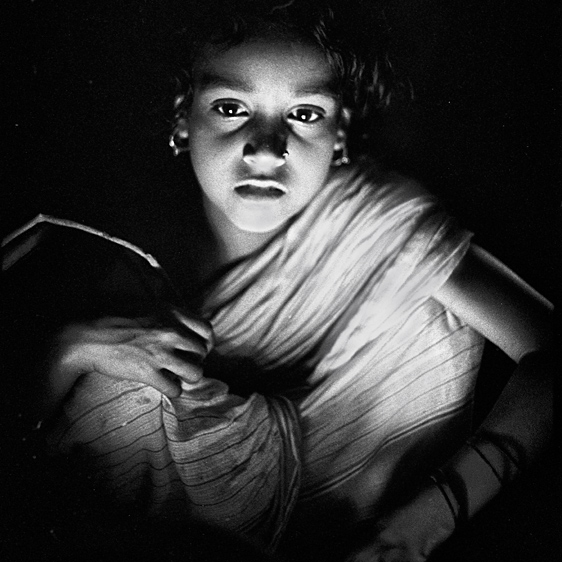
Manik: Exactly!
Shahidul: …and I think that makes a great difference.
Manik: So who is Shahidul Alam when he is not attending the lectures or giving the lectures, attending the festivals and the exhibition?
Shahidul: A dreamer.
Manik: How do you like to spend time as a person?besides you know all these photographic practices?
Shahidul: …there are things that I miss. I miss not being able to? doing as much photography as I would like to. I miss not reading enough. I miss not wondering enough. If I had the option, I would like to sit under a tree and wonder. I don?t often get that chance.
Manik: …now?
Shahidul: Now. I love a heated debate. I love having my deepest convictions challenged and rattled and wake up unsure of what?s going to happen. There are things which I still find exciting. Like the fact that, every night when I go to sleep I am waiting for tomorrow morning because that?s when I can really resume what I want to do. But there are many things that I and all of us have to do which is not really at the core of one?s either beliefs or intentions but has to be done because they are basic. That?s reality… one needs to accept that. But one yearns for the moment when … the machine moves by itself and you can move on to other things. But having said that I think there is also something that is very, very important…getting our feet wet, getting into the mud, being involved in the manual labour. Because, through acts that are higher paying (however you define pay), you also risk disengaging yourself from the roots. And perhaps this is a good balance.
Manik: One last question. You were attending Delhi Photo Festival ? that was India? first photo festival and a great job done by Prashant and Dinesh who actually get all the photographers? whereas this festival was supposed to happen way before, but it happened now. How do you think it could be improved? I remember there was a photographer who told me that the global aspect was missing?
Shaihdul: To an extent it was. I mean you didn?t have all these stars descending from all across the globe and whatever else. I?m not actually that worried about it. I thought the fact that there was reasonable level of participation was very important. Certainly we do not operate in isolation and seeing and being stimulated and provoked by what happens in the wider context is very, very important. Having your own work seen and critiqued by a wider peer group is also very important. But one should recognise that things have to begin and now I think you have made a very important beginning. I would rather that Delhi Photo Festival, or any photo festival including our own concentrated far, far more on being relevant to our local community. And once that happens I think the rest will follow. I think that is a far stronger base to build on than bringing in these stars from wherever and having a fancy show with all that sort of thing. I think one of the reasons why so many of these important photographers come to Chobi Mela today is because Chobi Mela is grounded. And they want to be part of it. So, I don?t think you need to chase them; they need to be chasing you.
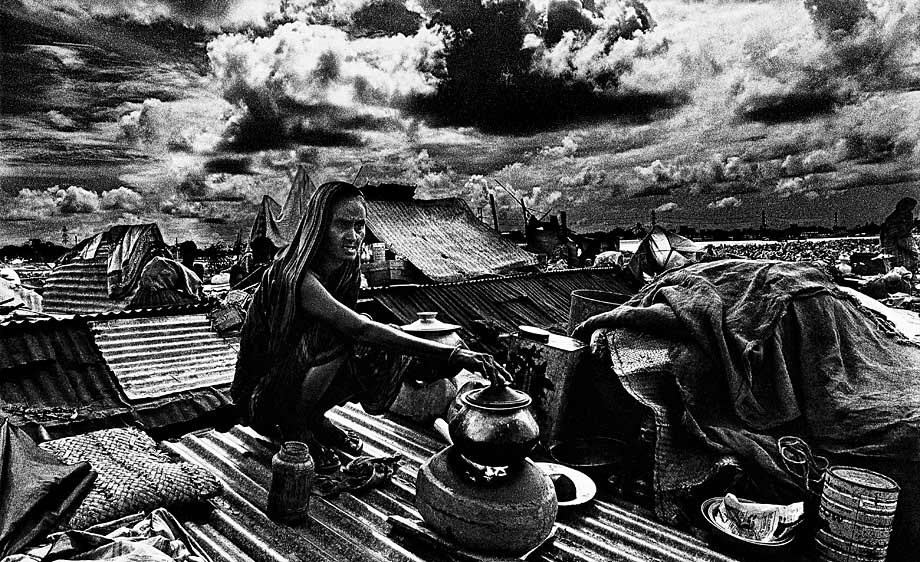
Manik: Brilliantly said! And I really appreciate the fact that you gave me so much time of yours and this is going to a very interesting interview?
Shahidul: This is our time…
Manik: Yeah!




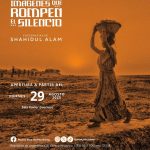
Leave a Reply
You must be logged in to post a comment.